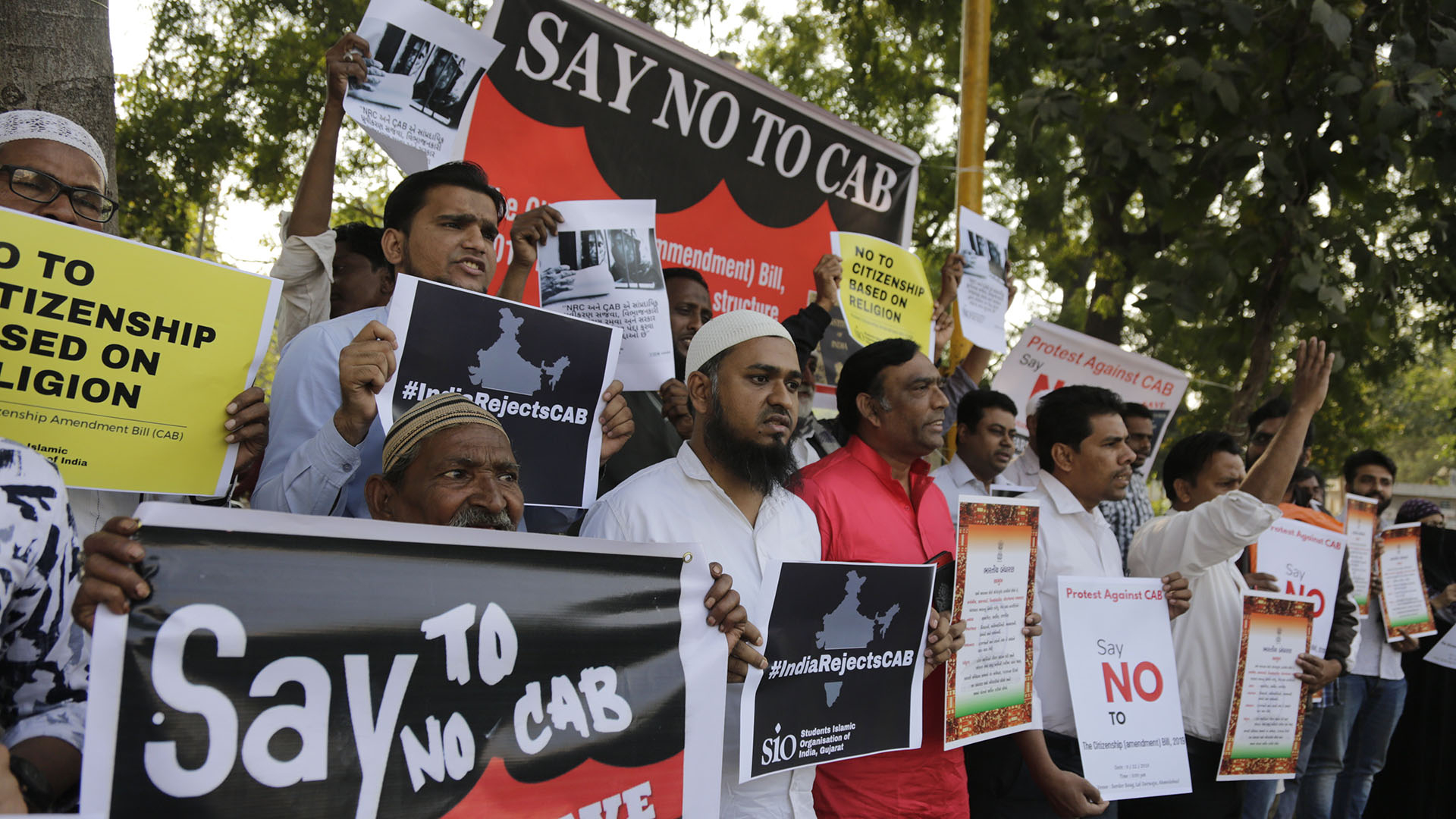
Indians holds placards and shouts slogans during a protest against Citizenship Amendment Bill (CAB) in Ahmadabad, India, Monday, Dec. 9, 2019. The bill that seeks to grant Indian citizenship to non-Muslim refugees from Pakistan, Bangladesh and Afghanistan is being debated in the Indian Parliament Monday. (AP Photo/Ajit Solanki)
Indians holds placards and shouts slogans during a protest against Citizenship Amendment Bill (CAB) in Ahmadabad, India, Monday, Dec. 9, 2019. The bill that seeks to grant Indian citizenship to non-Muslim refugees from Pakistan, Bangladesh and Afghanistan is being debated in the Indian Parliament Monday. (AP Photo/Ajit Solanki)
Protests erupted across India, with people marching against a bill that would create a pathway to citizenship for non-Muslim minorities from three neighboring countries on Monday.
Introduced by Prime Minister Narendra Modi's government in 2016, the bill, known as the Citizenship Amendment Bill (CAB), would be the first time that India creates a legal pathway to citizenship based on religion. It will grant Indian citizenship to non-Muslims from Bangladesh, Pakistan, and Afghanistan who entered the country before 2015.
Home Minister Amit Shah said that the bill was necessary on humanitarian grounds.
"In these three countries, Hindus, Buddhists, Sikhs, Jains, Parsis and Christians, followers of these six religions have been tormented,”Shah said, according to Reuters.
Opposition politicians say the bill discriminates against Muslims and violates India's secular constitution.
On Monday, a statement released by over 1,000 Indian scientists and scholars called for the bill's immediate withdrawal.
"We fear, in particular, that the careful exclusion of Muslims from the ambit of the bill will greatly strain the pluralistic fabric of the country,” they said.
Source(s): AP